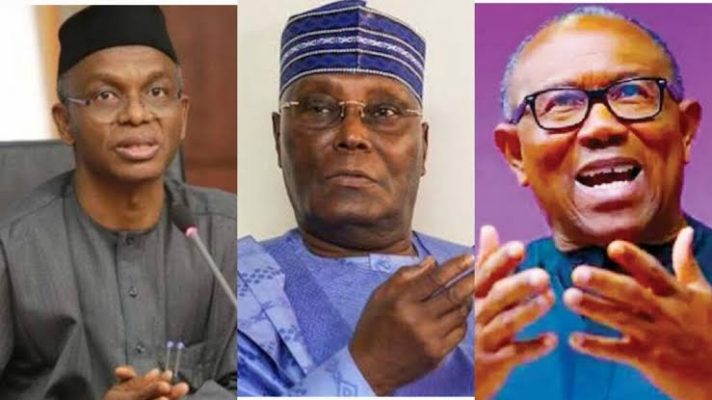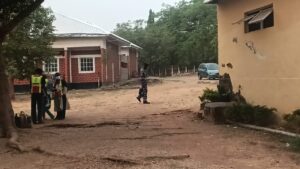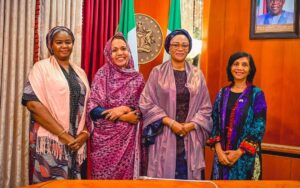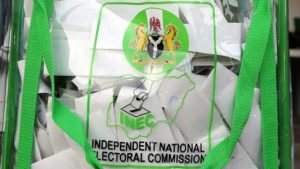By: Ademola Lawrence
Since Nigeria’s return to democracy in 1999, the political landscape has resembled a never-ending Nollywood drama complete with multiple parts, numerous plot twists, and no real conclusion. The saga continues, often devoid of ideological substance, driven by personal interests rather than national progress.
As a student of political science and a journalist with over a decade of experience, I’ve always found Harold Lasswell’s definition of politics “who gets what, when, and how” both profound and disturbingly accurate. In Nigeria, politics has become an intense scramble for scarce resources, and defection has become a strategic tool to gain proximity to power and privilege. But this raises a critical question: What is the value of democracy without a strong, principled opposition?
This article, titled “The Future of Opposition Politics,” is a reflection and a wake-up call—especially for the “anywhere belle face” politicians and the “I-want it-all” political actors who have turned our political process into a marketplace of convenience.
A Glance at the Past
In Nigeria’s First Republic, political parties though largely regional—had identifiable ideologies. The Northern People’s Congress (NPC), Action Group (AG), and National Council of Nigerian Citizens (NCNC) each had distinct philosophical underpinnings, with the NCNC standing out for its nationalistic orientation. While not perfect, these parties were driven by beliefs and policies, not just personalities.
Contrast that with the Fourth Republic, which began in 1999. Today’s political parties often lack clear ideology, vision, or integrity. “Anywhere belle face” politics dominates the scene, where politicians switch allegiances like passengers scrambling to board a Lagos molue—without concern for the destination, only the ride.
The 2013 Defection and Its Legacy.
The most significant political realignment in modern Nigerian history occurred in 2013, when several opposition parties merged to form the All Progressives Congress (APC), leading to the defeat of the ruling People’s Democratic Party (PDP) in 2015. This merger wasn’t just opportunistic it had a focus: a return of power to the North.
The coalition was formed by:
* Action Congress of Nigeria (ACN): With control in six states and led by Bola Tinubu, ACN had a strategic leader who operated with foresight, not noise.
* Congress for Progressive Change (CPC): Founded by Muhammadu Buhari, a three-time presidential candidate and relentless critic of the PDP.
* New PDP (nPDP) faction: Led by the likes of Atiku Abubakar, Bukola Saraki, Rabiu Kwankwaso, and Rotimi Amaechi, who defected from the PDP to align with the APC due to internal crisis and the push for power rotation.
This coalition, while lacking a shared ideology, at least had a unified goal. It presented a formidable opposition front capable of unseating a sitting president. But where is that sense of purpose today?
The Present: A Weak and Disjointed Opposition
Fast-forward to 2025. The APC has been in power for a decade eight years under Buhari and now under President Bola Ahmed Tinubu. The opposition has become largely dormant. Instead of a united, purposeful front, what we see is a scramble by aggrieved politicians seeking personal relevance.
Read Also
- Elections: Tinubu Charges Security Agencies, Voters To Maintain Order in FCT, Kano, Rivers
- "Atiku Should Be a Statesman, Not Presidential Candidate” — El-Rufai
- Peter Obi, Other Protesters Storm NASS Over E-Transmission of Election Results
- INEC Will Not Choose Leadership For Our Party, Says PDP Faction
Whispers of a new coalition involving Atiku Abubakar, Peter Obi, and Nasir El-Rufai are emerging. But what is the objective of this alliance? Is it to serve Nigeria or merely to settle political scores?
To Atiku Abubakar, former Vice President and perennial presidential contender: Sir, you’ve contested more elections than most in this country’s democratic history. At what point does ambition give way to statesmanship? As scripture says, “Take care, and be on your guard against all covetousness…” (Luke 12:15). And the Quran also warns against selfish desires.
To Peter Obi and El-Rufai: What is your joint ideological compass? What binds you together besides a common opponent? A coalition without a clear purpose is just noise—loud today, forgotten tomorrow.
A Word to the Ruling Party
President Tinubu, your recent comments about Nigeria becoming a one-party state are, frankly, unstatesmanlike. Democracy thrives on dissent, critique, and alternatives. A strong opposition ensures accountability. Surrounding yourself only with loyalists who say “yes sir” may feel good in the short term but it’s dangerous for governance and democracy. Even those joining your party out of convenience cannot be trusted to stay. As with all things political in Nigeria, personal interest trumps loyalty.
A Call to True Opposition
If established opposition figures continue to chase personal gain instead of national reform, then Nigerians will take up the role of opposition themselves—through civil discourse, activism, and by demanding answers.
To parties like the Labour Party, Social Democratic Party (SDP), and African Democratic Congress (ADC): now is your moment. Rise up with clarity, purpose, and integrity. Be more than pawns in elite chess games. Become the credible alternatives that Nigeria desperately needs.
Nigeria deserves a politics of vision, not vengeance. A politics of ideology, not expediency.
Only then will our democratic journey finally reach a meaningful conclusion not just another Part 5 of a Nollywood series.





